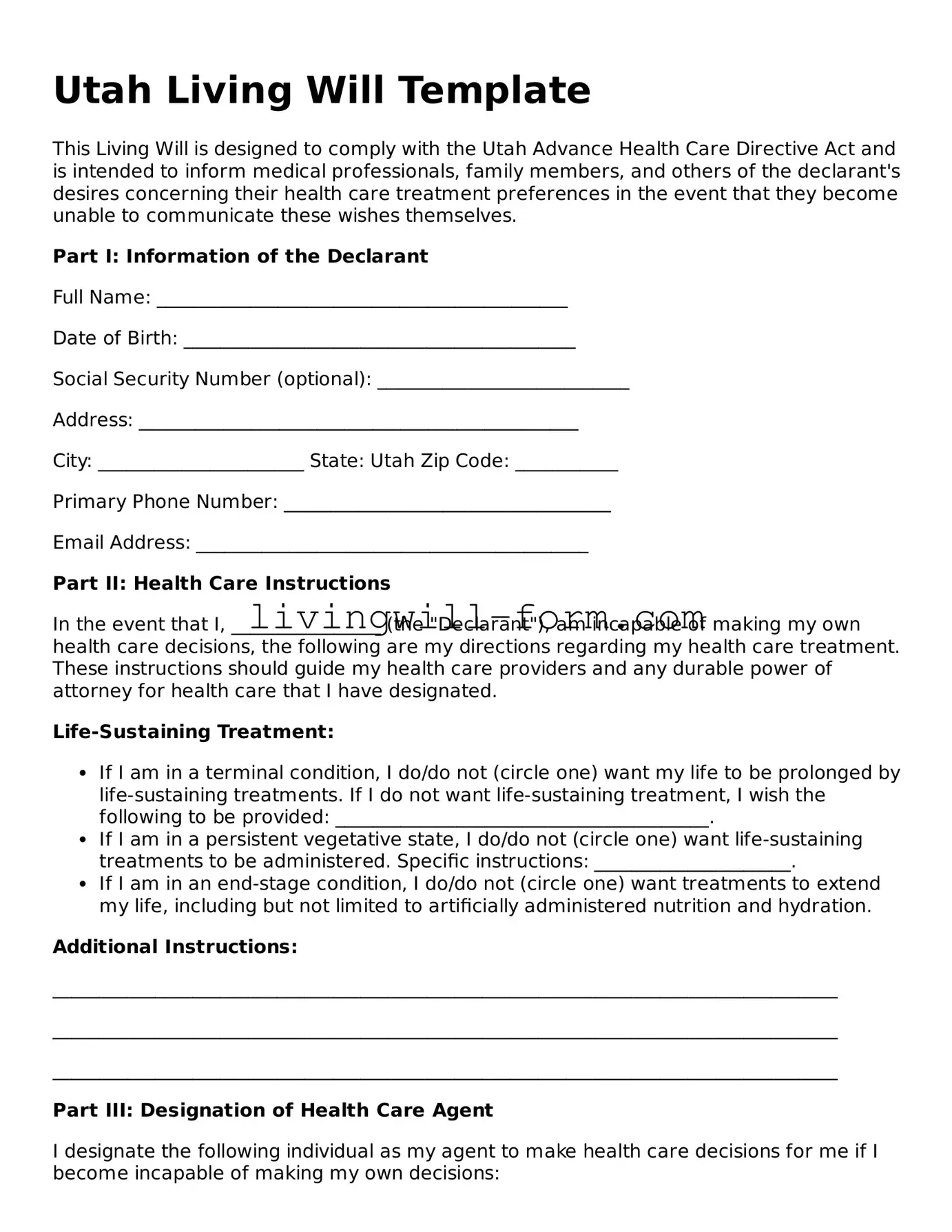Utah Living Will Template
This Living Will is designed to comply with the Utah Advance Health Care Directive Act and is intended to inform medical professionals, family members, and others of the declarant's desires concerning their health care treatment preferences in the event that they become unable to communicate these wishes themselves.
Part I: Information of the Declarant
Full Name: ____________________________________________
Date of Birth: __________________________________________
Social Security Number (optional): ___________________________
Address: _______________________________________________
City: ______________________ State: Utah Zip Code: ___________
Primary Phone Number: ___________________________________
Email Address: __________________________________________
Part II: Health Care Instructions
In the event that I, ________________ (the "Declarant"), am incapable of making my own health care decisions, the following are my directions regarding my health care treatment. These instructions should guide my health care providers and any durable power of attorney for health care that I have designated.
Life-Sustaining Treatment:
- If I am in a terminal condition, I do/do not (circle one) want my life to be prolonged by life-sustaining treatments. If I do not want life-sustaining treatment, I wish the following to be provided: ________________________________________.
- If I am in a persistent vegetative state, I do/do not (circle one) want life-sustaining treatments to be administered. Specific instructions: _____________________.
- If I am in an end-stage condition, I do/do not (circle one) want treatments to extend my life, including but not limited to artificially administered nutrition and hydration.
Additional Instructions:
____________________________________________________________________________________
____________________________________________________________________________________
____________________________________________________________________________________
Part III: Designation of Health Care Agent
I designate the following individual as my agent to make health care decisions for me if I become incapable of making my own decisions:
Name: _______________________________ Relationship: _________________
Address: ___________________________________________________________
Primary Phone: ______________________ Secondary Phone: _______________
Email: _____________________________________________________________
In the absence of my ability to give directions regarding the use of life-sustaining treatments, I grant to my agent full power to make such decisions for me, consistent with what is known about my wishes. If my wishes are unknown, I trust my agent will act in my best interests, taking into consideration the values and principles important to me.
Part IV: Signature and Witnesses
This living will is effective immediately and shall remain in effect until my death or revocation. I understand the full import of this document and certify that I am emotionally and mentally competent to make this will.
Signature of Declarant: _____________________________ Date: _____________
This document must be signed by two witnesses, neither of whom is the agent named herein, related to the declarant by blood, marriage, or adoption, or entitled to any portion of the estate of the declarant under a will or by operation of law.
Witness 1:
Signature: ______________________________ Date: _____________
Print Name: _____________________________
Witness 2:
Signature: ______________________________ Date: _____________
Print Name: _____________________________

